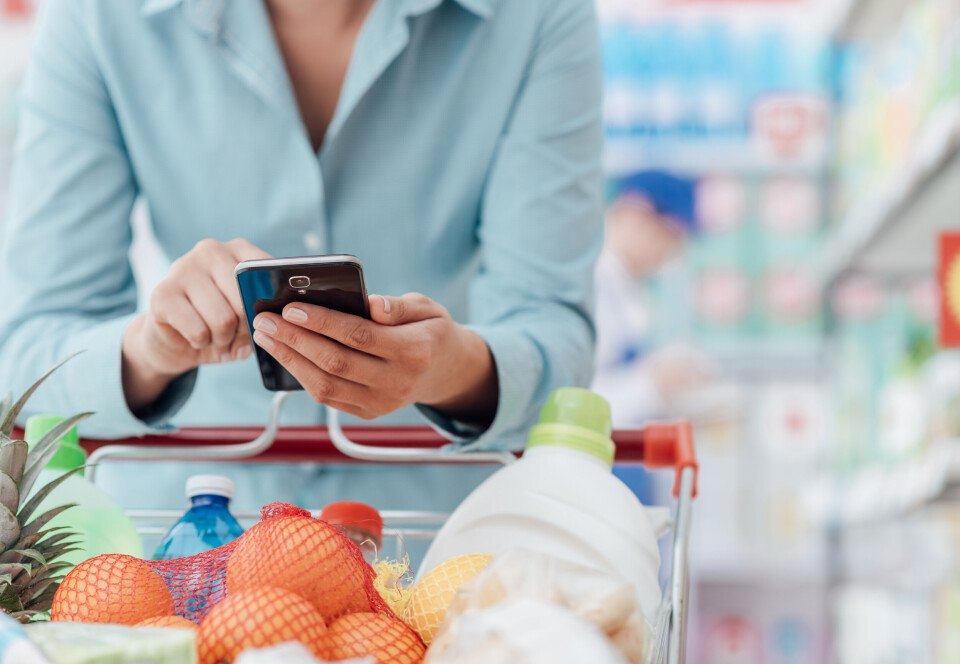-
90/180 days rule: readers tell of impacts on health and on family and working life
Rule affects Britons post-Brexit as well as other non-EU citizens such as Americans
-
18 recent and upcoming changes in France you may have missed in February
Changes include the income tax bands, delayed flight rules and hospital parking fees
-
90/180 rule: French MPS call for more flexibility
Many readers report difficulties caused by the limit, particularly where commitments span borders
Eight apps that could save you money on your French supermarket shop
These apps offer consumers cashback deals and price comparisons, as figures show the effect of inflation on shopping habits

Apps to help shoppers find the best supermarket prices are becoming more popular in France as inflation rises and the cost of everyday items soars to its highest level in 14 years. We list some of the most popular.
Supermarket prices surged in April, at 2.89% overall, and even higher for everyday items such as pasta (15.31%).
Read more: The top 10 rising food prices in France… and five that are going down
As a result, some supermarkets have announced deals to help reduce costs, including E. Leclerc, which put an ‘anti-inflation shield’ across 120 products from May 4. This is set to last until July.
Read more: French supermarket chain freezes prices of 120 most-bought items
However, various smartphone apps have popped up, claiming to help consumers make their money go further, with cashback systems and price comparisons.
Shopmium
Cashback app. Users send a photo of their receipt, and are then given a partial reimbursement on products included in offers. Funds go directly to your bank account or Paypal account. When you register on the app, you will be able to claim a free product (100% refund) as a welcome gift.
Quoty
Cashback app. Scan the barcode on your receipt and send a picture of it directly to the app. Reimbursements will then come through within 48 hours. The app also lists discount vouchers that can be printed, as well as current promotions. You can also create a shopping list directly on the app, and apply reimbursements directly to items on your list.
Igraal Market
Cashback app, which also enables you to shop by collecting discounts, which you can then use both online and in-store. Users will be reimbursed after sending proof of purchases. Transfers to bank accounts can be made as soon as you reach €20 cashback. Additional discounts can be earned by watching a video or taking a brand quiz. Igraal Market says that its app enables users to save as much as €47 per week on shopping.
FidMarques
Cashback app, which also rewards loyalty to certain brands. Buying products from the app’s partner brands earns loyalty points that you can then exchange for money off via loyalty cards. Similar to the apps above, users must take a photo of their receipt. Users earn two points for every euro spent, and after 25 points, you are entitled to a 100% refund on a product from a partner brand.
Keetiz
App that encourages local shopping, by partially reimbursing products from local shops. Users need to register their bank card, and shop in local, small shops by paying with the same card. Reimbursements happen automatically, and once it reaches €10, users can transfer the money directly to their bank account. Works for food and other goods, as long as they are bought locally.
Mon avis le rend gratuit (‘My opinion makes it free’)
App that works with the Carrefour supermarket group, which offers free products for users to test. Users can choose which products to test, and then present the barcode from the app in-store. A minimum purchase of €30 in-store is also required. Users must then test the product and leave a review on the platform to receive points for testing other new products.
Prixing
Price comparison app. Users can scan the barcode of a product and find out which supermarket chain has it at the cheapest price.
Anti-crisis.fr
Website with an app version. Lists all the discount catalogues of major retailers and offers tips for saving money when shopping. You can also print out discount vouchers and view cashback offers.
How have people in France reacted to inflation so far?
Standard of living research centre Crédoc has said that since February, rising prices have had an effect on consumers’ habits. Almost half (48%) said that they were planning to reduce spending (versus only 34% who said the same thing in July 2021).
Among lower-income households, this percentage rose to 69%.
Buying habits have also changed, with organic foods among the less popular products. Retail analytics firm IRI said that the organic food market dropped by 6.6% in the first quarter of 2022 compared to the same period last year.
Frozen foods also dropped by 5.3% at the end of April, IRI said. Frozen meat is one of the products to have soared in price in recent weeks (up 11.33% in comparison with April 2021).
Among non-food items, toiletries and hygiene products have dropped by 7%. This is partly driven by people no longer buying masks, at-home Covid tests or hand sanitiser gel – but also seen in other items such as hand cream and lip balm (down 30%), and even toothbrushes (down 29%).
Read more: Smartphones, hairdryers, vacuums: Food not only cost rising in France
And yet, some items are seeing a spike in sales despite rising prices. Flour, which has risen by almost 11% in price, has seen a 36% jump in sales. This is partly because some consumers appear to be stockpiling the product in fear of future shortages due to the war in Ukraine.
Oils, especially sunflower oil, have also been flying off shelves despite rising prices (up almost 10%), with shortages due to the conflict.
Related articles
Cost of living in France: New details on 'purchasing power' law
The top 10 rising food prices in France… and five that are going down
























